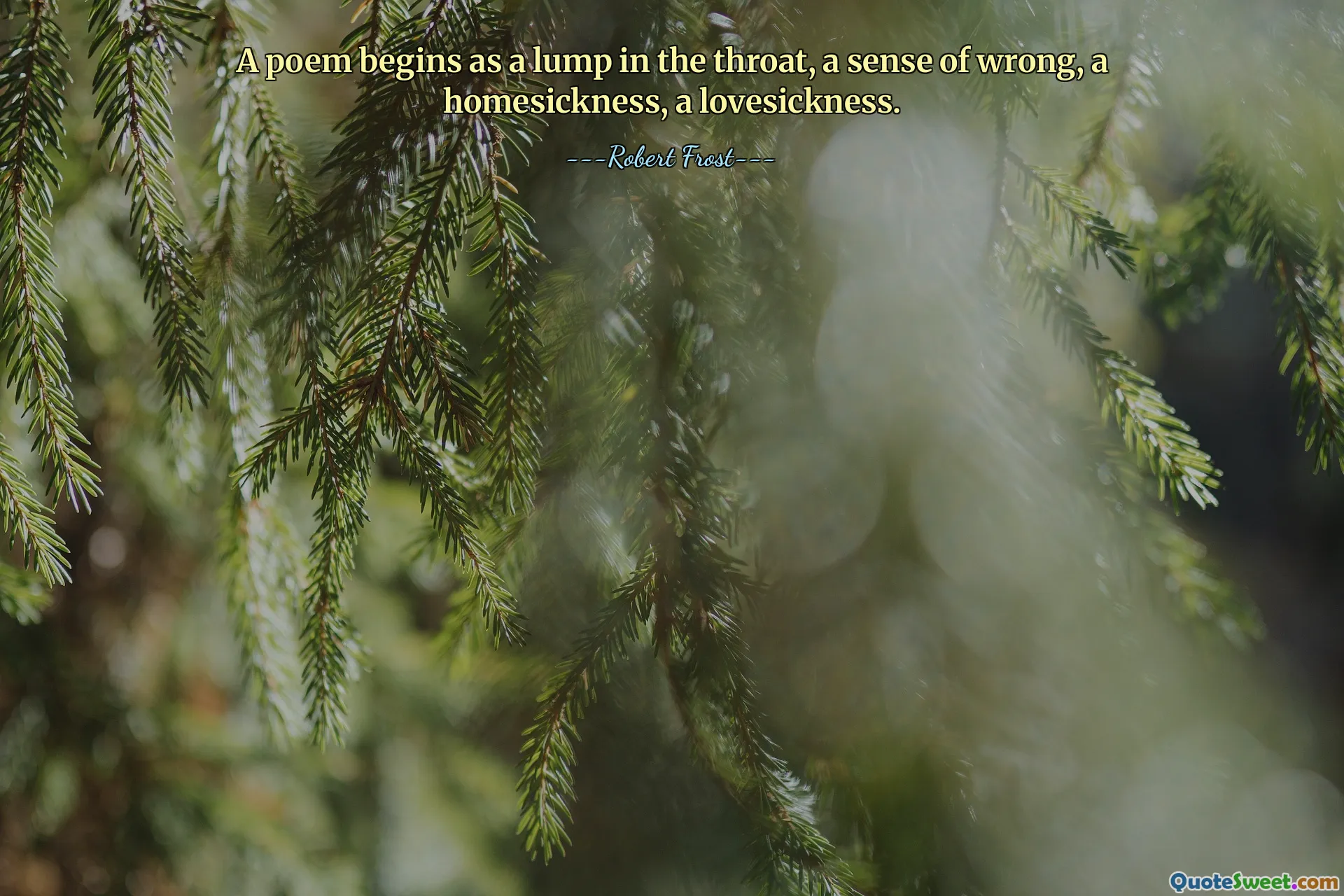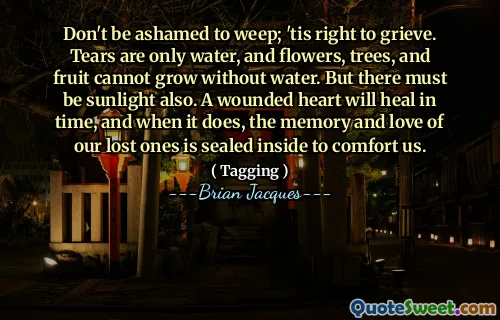
A poem begins as a lump in the throat, a sense of wrong, a homesickness, a lovesickness.
This quote by Robert Frost encapsulates the emotive origins of poetry in a beautifully concise manner. It suggests that poetry is born from profound, often uncomfortable, feelings—those deep emotional stirrings that one struggles to articulate. The "lump in the throat" metaphor evokes physical sensations linked to strong emotions, hinting at how poetic creation is intimately connected to our visceral experiences. Frost ties the birth of a poem to "a sense of wrong," implying that poetry often arises out of dissatisfaction or injustice, compelling the poet to express what is troubling or unresolved.
Furthermore, the inclusion of "homesickness" and "lovesickness" reflects nostalgia and longing as potent creative forces. These sentiments speak to the universal human experiences of loss, yearning, and desire, which often demand expression beyond ordinary conversation. Poetry, therefore, emerges as a form of emotional release and transformation—taking complex, intangible feelings and making them tangible through language. The quote honors the uneasy, sometimes painful, emotional undercurrents that drive poetic inspiration. It also reconciles the tension between suffering and art, reminding us that beauty often springs from vulnerability. Frost’s words invite us to appreciate how poetry connects deeply with the human condition, serving as a bridge between inner turmoil and outward expression. In this way, poetry becomes not just an art form but a vital mode of understanding and communicating what it means to be human.







